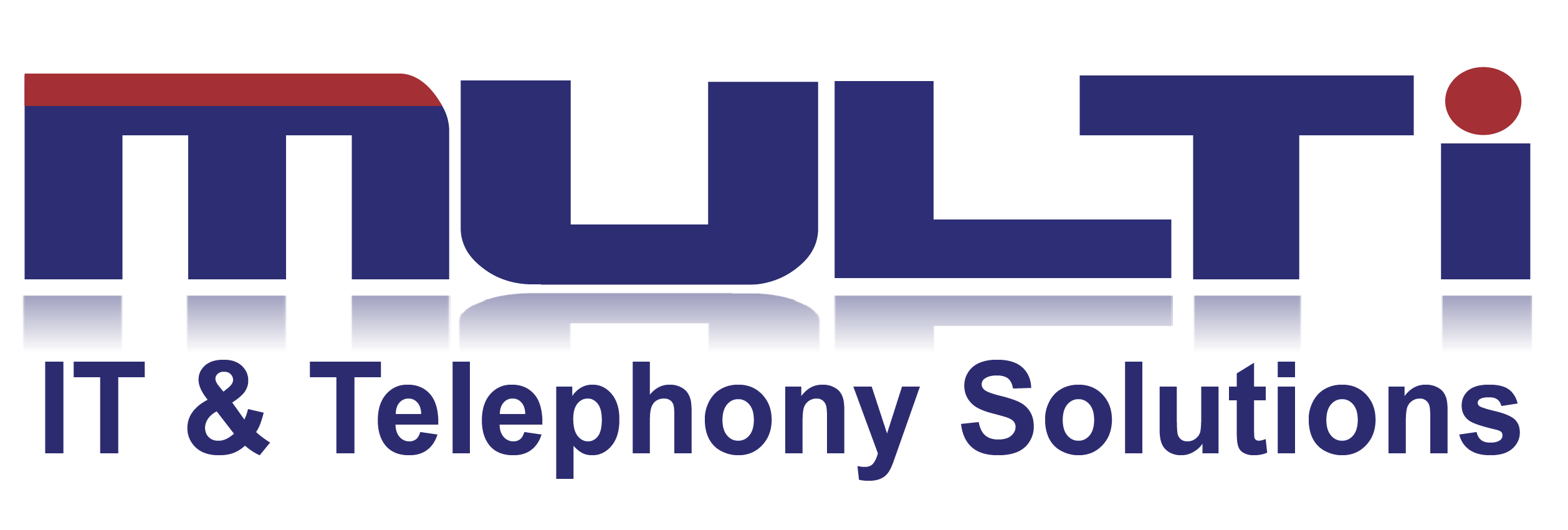Businesses should be clear on the differences between VoIP support, vendor technical assistance, and system administration.
The word “support” is subject to interpretation. That’s why we’ll illuminate and contrast related activities and service offerings frequently conflated with VoIP support activities.
Support and Vendor Technical Assistance are a few degrees apart in scope. VoIP administration is a separate service since its scope is significantly more extensive.
The following three sections will empower you with pointed questions to articulate your business requirements with much greater clarity.
#1 – VoIP Support
MULTi IT and Telephony Solutions and most other MSPs are familiar with the two primary varieties of VoIP: Software as a Service (SaaS) and premised-based phone systems.
This discussion will focus on the SaaS category and its more descriptive and current moniker, Unified Communications as a Service (UCaaS).
The evolving UCaaS platform has a comprehensive catalog of collaboration solutions spanning voice, video, chat, telephony, text, mobility, presence, instant messaging, conferencing, and scheduling.
It also has expanded functionality and integration with office productivity tools, file sharing, and storage.
Doesn’t this sound more like an IT application than a basic phone service?
It should because it is, and it’s constantly evolving. UCaaS also has a high level of public awareness and transparency.
Many industry leaders are Unified Communications as a Service companies featured in Gartner Group’s Magic Quadrant.
Most MSPs are well versed in Unified Communications as a Service.
Since your IT provider’s job is to monitor, manage, support, and secure your local area network and users, they are responsible for owning the uptime of your IT systems.
This base-level MSP service integrates and tracks all network components throughout the technology lifecycle. If it’s connected to your systems, your MSP is involved.
Every UCaaS service implementation includes but is not limited to the following activities, which by default, require your MSP to:
- Coordinate the cutover with the carrier and the service provider (it could be the same company)
- Make changes to settings on your server, switch, and firewall
- Create a vLAN to segment voice traffic from data traffic
- Install additional cable drops or at least collaborate with a low voltage vendor
- Assist with the setup and configuration of desk phones or softphones
Of course, your MSP has visibility into all the standardized hardware, software, and services connected to your network.
So they should be able to not only support UCaaS infrastructure but also provide help identifying and troubleshooting issues related to the service.
The same applies to well-known solutions from prominent names like Cisco, Datto, Dell, HP, Lenovo, Microsoft, Proofpoint, Veeam, and VMware.
On a small world note, both Cisco and Microsoft are in the UCaaS space. And each UCaaS solution from major names like 3CX, Ring Central, Nextiva, and Vonage is designed to work in IT stacks that include all of the brands I mentioned.
We’re talking about modular pieces of the same general puzzle.
#2 – Vendor Technical Assistance is a Little Different than VoIP Support.
Sometimes referred to as vendor management, vendor technical assistance (VTA) is a more formal description of daily IT support activities that require the MSP to troubleshoot IT support issues with third parties.
While the first section mainly addresses core support capabilities, VTA is the intentional discipline of engaging a host of outside technology vendors.
For example, users may be unaware of the root cause when they open tickets with their MSP.
A system administrator or network engineer knows how to quickly isolate the problem and then work with their technical counterparts at AT&T, Bigleaf Networks, Comcast, Ring Central, Windstream, Polycom, etc., to resolve any issues.
This process may entail calling and emailing several companies before achieving a resolution.
VTA goes way beyond UCaaS and is typically a separate line item on an MSP proposal and contract.
I’ve been in the MSP business since 2003, and many of the following scenarios qualify as VTA events:
- Onboarding a new PEO vendor
- New service cutovers of any kind
- Data recovery projects
- Ransomware threats
- Power outages
- Floods
- Security alarm malfunctions
- Hardware or software procurement projects
- Copier installs
- Firmware upgrades
- Software updates
Each of these situations can potentially consume up to six hours a month. Can you see why companies would rather pay someone else to do this?
MSPs who don’t classify this service, define the parameters based on the client’s vendor count, and simply tell a prospect they “support” everything are setting an expectation that will be hard to fulfill.
They will either do all the legwork and lose money or only do part of the legwork to avoid losing money.
#3 – VoIP (UCaaS) Administration is Much Deeper than VoIP Support.
This term is an entirely different animal compared to support and VTA. It incorporates operating activities from both disciplines.
However, it’s similar to an MSP’s role when they administer your Microsoft 365 account.
Users who need help with passwords, SharePoint, One Drive, or Teams aren’t opening tickets directly with Microsoft.
They’re contacting their Microsoft Certified Partner MSP, the authorized admin on the account.
UCaaS administration typically includes each of the following services for a fixed fee:
- Moves, adds, changes
- User support based on your headcount
- Help configuring Auto Attendants, Call Centers, and General Voicemail Boxes
Like Microsoft 365, UCaaS solutions are software-based and easy for qualified engineers to jump into and tweak the settings.
Your team will not have to call 8X8, Dialpad, Nextiva, Ring Central, Vonage, or anyone else. Your MSP should do this on your behalf if they charge you an administrative fee.
Next Steps in Your UCaaS Journey
Your MSP can enhance your VoIP/UCaaS experience. But you need to clearly state your needs with the correct terminology.
Here’s a quick run-down of the main takeaways:
- MULTi IT and Telephony Solutions can support all of the usual suspects in the UCaaS field.
- VTA is different than basic support and requires interacting with third parties. (This can be time-consuming and frustrating for non-technical types.)
- Administration means the MSP is truly running the show, and you won’t have to worry about going direct with one or several vendors when you need a hand.
We can also support and provide VTA to premise-based VoIP solutions as long as the hardware and software have current warranty/support coverage.
The administration piece requires case-by-case consideration.
We look forward to a conversation if you have any additional questions or want to evaluate MULTi Hosted 3CX VoIP Solutions.
Get in touch to discuss with us Today
Johannesburg – +27(0)11 435 0450, [email protected]
Cape Town – +27(0)21 879 1950, [email protected]
Durban – +27(0)31 331 0735, [email protected]
Namibia – +264(0)84 000 8310, [email protected]

